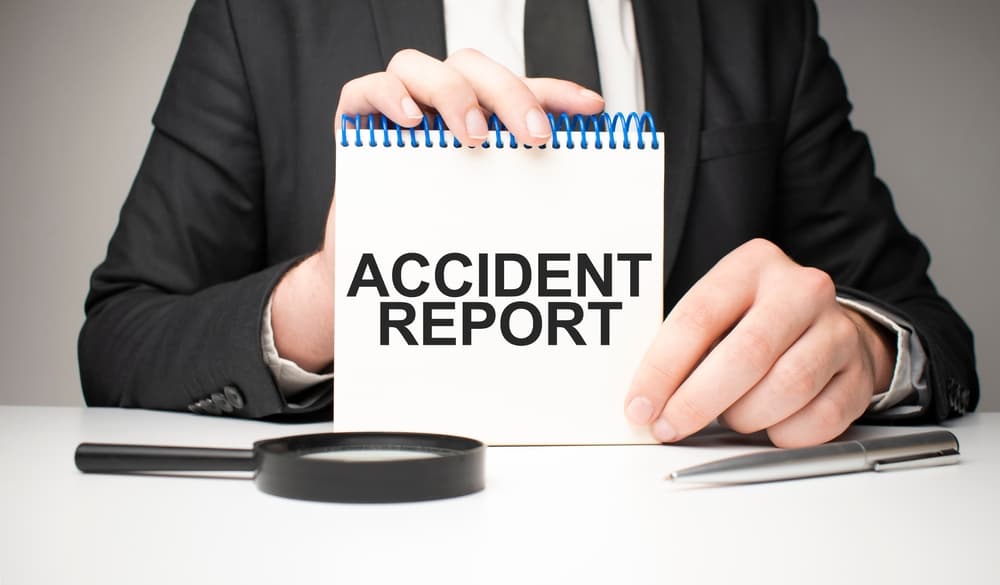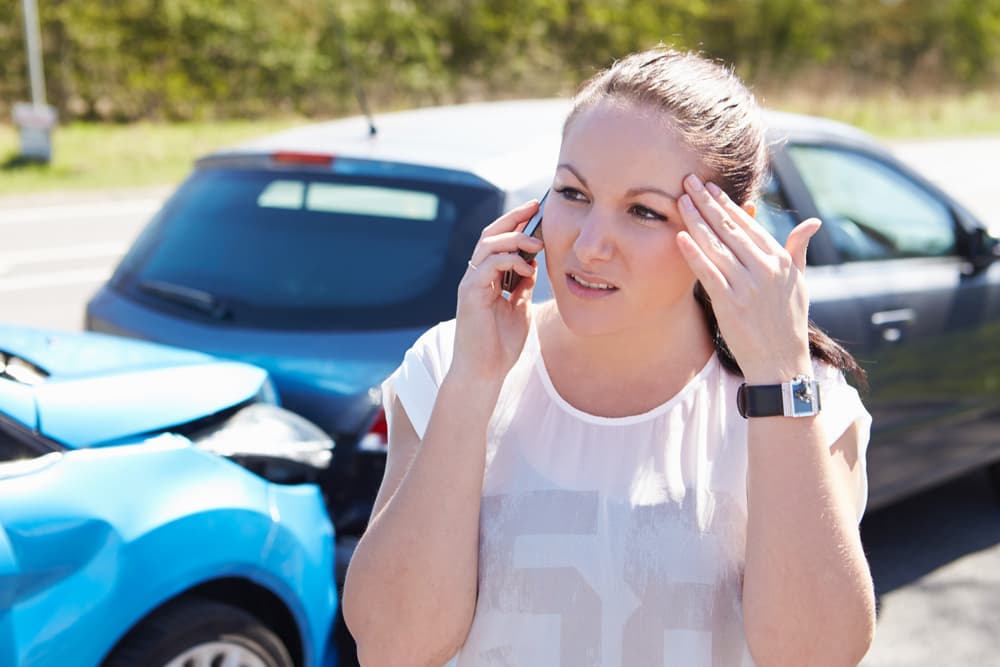One of the critical administrative details of a car accident is the actual accident report, and you or the police officer who came to the scene may have filed it. While the accident report does not always determine fault for the accident, it can play an essential role in your case.
If you file the accident report, you must follow the requirements and only record accurate information. If the police officer wrote and filed the report, you must check to ensure the documentation is correct. You can dispute incorrect information, although the process may be complicated.
You must obtain legal representation right after suffering an injury in a car accident because you never want to deal with these problematic issues without help.
You may compromise your legal case and ability to obtain total and fair financial compensation for your injuries. You will not have to pay any money out of your pocket to get legal help.
Once you consult a Brooksville car accident lawyer, you can focus on medical treatment and physical recovery. Your attorney will obtain a copy of the accident report and ensure the police amend it as necessary to correct the information.
This is only one of many benefits an experienced attorney provides during your car accident claim.
What Is on the Car Accident Report
The car accident report will contain essential information about the crash. The report should have enough documentation to explain what happened in the accident, and while there may not be excessive detail, there should be enough to cover the topic.

Each state requires what the accident report needs.
Generally, this information will include:
- Personal and contact details
- The name and addresses of each party involved in the accident
- The insurance information for each party
- What happened during the car accident
- The sequence of events that led to the accident
- The conditions in the area at the time of the accident
- The road conditions before the accident
- Statements from witnesses who saw the accident and their contact information
- Injuries and property damage suffered by each of the parties
The Police Officer May Have Filed an Accident Report (Make Sure They Get it Right)
The police officer may have come to the accident scene, and it is always a good idea to report the accident to the officer. The police officer may write an accident report depending on the circumstances.
The police officer does not always make an accurate report because people may tell them conflicting details when they arrive at an accident scene. Although the officer is not a judge or jury, their words carry authority.
You may challenge the results of the accident report, but you will need evidence to demonstrate your side of the story, and you may need to have your attorney contest the report's contents.
Obtaining a Car Accident Report
You always have the right to obtain the report, and the officer may give you a copy at the scene. You can request the information online if the officer filed after the accident.
Getting the report as soon as possible after it is final is essential, and you need to review it to ensure it does not contain any inaccuracies. If there are incorrect facts, you must challenge them because anything wrong with the report can make your legal process more difficult.
You May Have to File the Accident Report on Your Own
If the police officer did not write a report, you must file an accident report with the State Department of Motor Vehicles. Usually, you must file a report if the accident causes injuries or property damage. Since even the most minor car repairs can cost thousands, you may need to report the accident.
You can file most accident reports online. Each state's motor vehicles department has an online reporting system that should make it easier for you to file, and you can complete it in a matter of minutes without even leaving your home.
Be Careful When You Are Filing the Car Accident Report
Even if it is easy to write an accident report, you must put thought and care into the exercise. What you say on the accident report can impact whether you can get compensation in the legal process, and the insurance company will quickly jump on it if you say something that even partially admits fault.
Mistakes to Avoid When Filing an Accident Report
If you file a report after the accident, you will be responsible for providing information that may become part of the document. You must provide accurate and truthful information to the fullest extent possible.
It may be difficult for you to remember all the events surrounding the accident. After all, you experienced immense physical and emotional stress, both during the accident and since then.
Nonetheless, you must try to remember what happened as best as you possibly can.
Providing false or misleading documentation on the accident report may complicate your legal process. The insurance company may not give any credibility to the car accident report, especially when they have incorrect information.
In addition, filing a false report with law enforcement can carry criminal consequences.
Do Not Wait Too Long to File the Accident Report
It is challenging to reconstruct information about the car accident after it has already happened. The more time passes, the harder it is to remember critical details that need to be on the report. Further, if you file it too long after the crash, it may carry less credibility.
You also have legal requirements to file an accident report within a certain period, and you may face the consequences if you delay the accident report.
Report the Accident to the Insurance Company

In addition to reporting the accident to law enforcement, you must notify your insurance company. They need to know because they will confer with the other driver's insurance company to determine liability. Your insurance policy also requires you to notify the carrier within a certain period after the accident.
It is best to be careful when speaking to anyone about the accident because your insurance company can become your adversary in a hurry when it has implicated financial interests.
Suppose the other driver did not have enough insurance coverage. In that case, your carrier will be responsible for paying you under your underinsured motorist coverage but will do whatever is necessary to avoid paying you.
Things you say to your insurance company can come back to haunt you, so be careful discussing too many details when you make the initial report if you still need to hire a lawyer.
Consider having an attorney by the time you need to give details to your insurance company. Not only is it stressful to deal with them, but it is also tricky, given your physical condition.
How Insurance Companies Will Use the Accident Report
Both insurance companies will review the accident report closely and want to know that the facts are consistent with the rest of the evidence they are seeing. It is possible, but rare, for the insurance companies to reach a conclusion that is at odds with what the officer has found in the report.
They are more likely to disagree with the report filed by one or both drivers involved in the accident because they can have entirely different versions of the facts.
Then, the information about your injuries and property damage should also be consistent with what the insurance company hears in the days afterward. The challenge is that your car accident injuries can worsen over time.
The report may state that you seemed fine at the scene, but you begin to develop symptoms in the days or weeks after the accident. Whiplash is an injury that is not always apparent at the time of the crash, and you may begin to feel unwell shortly after the accident.
The Car Accident Report Is Not Direct Evidence in Your Case
The car accident report does not necessarily prove what happened in the crash. Even when the officer has put their observations into the car accident report, it is only sometimes conclusive proof of what caused the accident.
The officer may have shown up at the scene after the crash, or the report may contain information given to law enforcement. The officer witnessed the scene after the crash but did not see the accident itself.
Further, you cannot use the police accident report if your case goes to trial because the contents will be considered hearsay. Additionally, witnesses need to testify about what they saw firsthand. Otherwise, the court might not admit the report. Nonetheless, the report may help your case.
The insurance companies will use police reports to determine who was at fault in the car accident. The officer may have concluded what they think may have caused the accident.
Insurance companies may rely on what the officer found after the fact when determining which driver was to blame or how to apportion fault between the two motorists.
If the insurance companies cannot agree on blame, they will go to arbitration for a determination. Again, the text in the police report will play a significant role in the case outcome.
How an Attorney Can Help You Prove Fault and Damages
Your attorney will be the one who gathers the evidence that you use in your claim.
They will:
- Interview witnesses who saw the accident
- Obtain and review pictures of the scene of the accident
- Obtain dashcam and traffic camera footage that can show the actual accident or the time right before
- Work with an accident reconstruction expert to obtain an opinion about which driver caused the crash
You can receive a settlement offer once you meet your burden of proof to show that the other driver was responsible for the accident. Then, your attorney can estimate the value of your damages and fight for every dollar you deserve.
Insurance companies frequently challenge damages in car accident claims, aiming to minimize payouts and protect their bottom line. The law allows you to seek compensation for medical expenses, property damage, lost income, and pain and suffering. However, obtaining the full compensation for these losses is often challenging.
Insurers may dispute the extent of injuries, the necessity of treatments, or the overall impact on your life. Adjusters can look for any possible way to minimize your compensation to protect the company’s bottom line.
Never trust an insurer’s assessment of your damages, and never accept a settlement offer without legal advice.
Experienced car accident attorneys can counter any challenges by the insurer and gather evidence to support your full compensation and losses. Your attorney can negotiate with insurers to ensure fair compensation that accurately reflects the damages you incurred.
When to Consult with a Car Accident Attorney
Filing a car accident report is just the beginning of the legal process. You will then need to file an insurance claim to prove that someone else was to blame for the accident.
Never begin the claim process or speak with insurance companies on your own, as companies regularly take advantage of unrepresented claimants.
Instead, always contact a Brooksville car accident lawyer right after the car accident. Get medical attention, and once your health is stable enough, seek your free legal consultation. A lawyer can assess your best options for seeking compensation for your injuries and losses.
Some things can happen early in a car accident case that can compromise your legal rights, so always hire a Brooksville personal injury lawyer immediately to take over the process.









